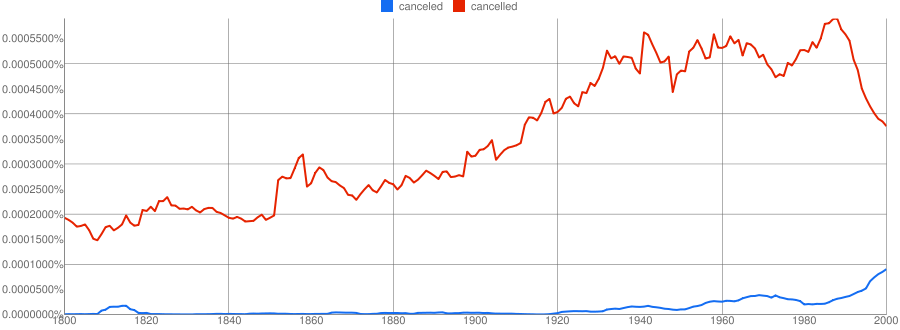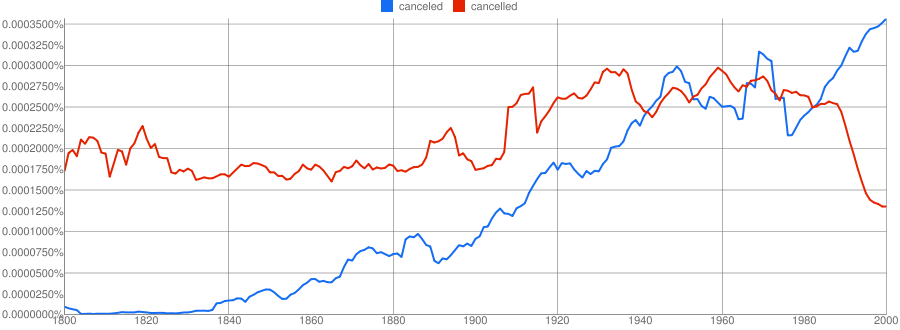Possible Duplicate:
When is “L” doubled?
Is there any guidance on the usage of doubled consonants, particularly L, in British versus US English? For example 'Travelled' v. 'Traveled', 'Cancelled' v. 'Canceled', but then 'Enrolment' v. 'Enrollment'. Then there's 'Travelling' v. 'Traveling' etc.
In each case I've put what I consider to be the British standard first.
Just wondering if there's any consistency, for example 'in present and past participles ending in L the British usage is to add a second L'?


